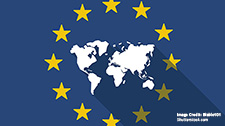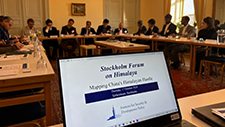Whither the OSCE and the Euro-Atlantic & Eurasian Security Community?
Kirsten van Kaathoven
The latest OSCE Ministerial Council in Dublin, on December 6–7, 2012, has shed light on the challenges and opportunities that the organization will continue to face, as well as on the security community debate. This policy brief will outline recent developments and will discuss the potential comparative advantages that security community-building institutions (including OSCE, NATO, EU and the Council of Europe) might have in developing the envisioned Euro-Atlantic and Eurasian security community. It will argue that in order to be effective, such efforts need to be both prioritized and inclusive.




